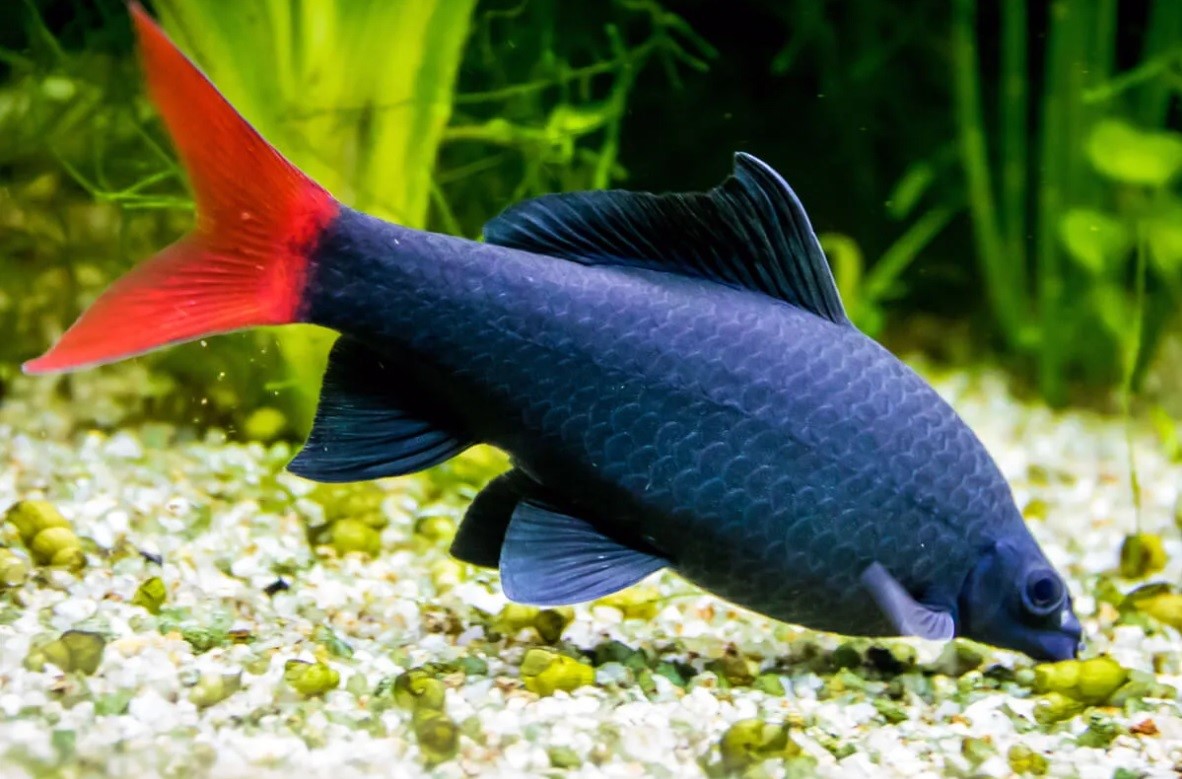Why Is My Red Tail Shark Losing Color
Is your red tail shark losing color? If you're a concerned fish owner, you're not alone. A common problem among red tail shark keepers is their fish losing color, and it's not always clear why. Don't worry, we've got you covered with this informative post about why is my red tail shark losing color and how to fix it.
The Pain Points of Red Tail Sharks Losing Color
Seeing your fish lose its beautiful colors can be alarming, and it can be tough to know what to do about it. Often, this can indicate an underlying health problem that needs to be addressed promptly.
Why is My Red Tail Shark Losing Color?
There are several reasons why your red tail shark might be losing color. One possibility is that it's experiencing stress due to poor living conditions, such as over-crowding or unsuitable water parameters. Another is that it is not receiving the proper nutrition, causing it to lose color and become sluggish. A third possibility is that there is an underlying illness or disease present that is impacting the fish's overall health and well-being.
Summarizing the Main Points
In summary, if you're a fish owner and your red tail shark is losing color, you should investigate the potential causes of the problem. These can range from poor water quality and lack of nutrition to underlying health problems. Addressing these issues promptly can help to restore your fish to health and vitality. Remember, a healthy red tail shark is a happy red tail shark.
Understanding the Target of Red Tail Sharks Losing Color
One factor that can cause a red tail shark to lose its vibrant coloring is an unbalanced diet. In my personal experience, I noticed that feeding my red tail shark a diet of primarily flakes led to a loss of color. I consulted with my local aquarium store and found that incorporating a mix of protein-rich foods such as brine shrimp and bloodworms improved the fish's overall health and vibrancy.

Importance of Proper Water Parameters for Red Tail Sharks
Red tail sharks require specific water parameters, and deviations from these can impact their health and well-being. As an aquarist, it's important to monitor water conditions regularly, and make changes as necessary to ensure that the water is healthy and supportive of your fish. Adding live plants is another way to help regulate the water parameters and promote a healthy environment for your red tail shark.

The Role of Stress in Red Tail Sharks Losing Color
Stress is another critical factor that can impact the health and coloring of red tail sharks. Factors such as over-crowding, inadequate tank size, and aggressive tank mates can lead to stress and health problems for these fish. Keeping a clean and well-maintained aquarium can help to mitigate these stressors and ensure that your fish can thrive and maintain their color.
The Role of Illness and Disease in Red Tail Sharks Losing Color
In some cases, underlying illness or disease can be the root cause of red tail sharks losing color. Symptoms of illness can include lethargy, loss of appetite, and discoloration of the skin. If you notice any such symptoms, it's essential to investigate and address the underlying issue promptly to ensure the health and well-being of your fish.

Question & Answer
Q: Can stress cause a red tail shark to lose color?
A: Yes, stress can be a significant factor in red tail sharks losing color. Factors such as inadequate living conditions, over-crowding, and aggressive tank mates can cause stress and lead to a loss of color.
Q: What can I do to fix my red tail shark's loss of color?
A: If you notice your red tail shark losing color, you should investigate potential causes, such as poor water quality, inadequate nutrition, or underlying illness. Addressing these issues promptly can help to restore your fish to health and vibrancy.
Q: What are some important tips for keeping red tail sharks healthy?
A: Maintaining proper water parameters, feeding your fish a balanced and diverse diet, and monitoring for signs of illness are all critical for ensuring the health and well-being of your red tail shark.
Q: How can I prevent my red tail shark from losing color in the future?
A: Maintaining a clean and well-maintained aquarium, monitoring water parameters regularly, and feeding your fish a diverse and balanced diet are all crucial factors in preventing red tail sharks from losing color.
Conclusion
If your red tail shark is losing color, it's critical to investigate the potential underlying causes. From poor water quality and inadequate nutrition to illness and disease, several factors can impact the health and well-being of your fish. Take steps to address any underlying issues promptly to restore your fish's health and vibrancy, and always remember to maintain a clean and healthy aquarium environment.
Gallery
Red Tail Shark: Size, Food, Tank Mates, Care… - Everything Fishkeeping

Photo Credit by: bing.com / mates
Why Your Red Tail Shark Is Losing Color And How To Fix It! – Pawfect

Photo Credit by: bing.com /
Red Tail Shark Size, Appearance, Food & Care Guide

Photo Credit by: bing.com / aquarium sharks tankmates queue wels arnoldi otocinclus poisson bicolor tailed freshwater chat epalzeorhynchos requin endstück angebundener coda rotes feuer haifisch
Red Tail Shark | Care, Food, Tankmates, And Reproduction Guide

Photo Credit by: bing.com / sharks epalzeorhynchos campbelltown bicolor bala labeo
Please Help Me Find My Red Tail Sharks Gender | My Aquarium Club

Photo Credit by: bing.com /
